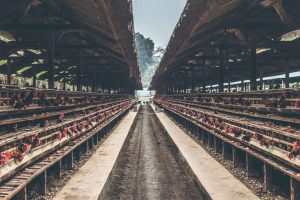Nigeria’s agricultural sector is a titan, consistently contributing around 24% to the GDP and employing over 36% of the workforce. Despite this strength, challenges remain. Let’s delve into the economic report on Nigerian farming.
The Good News: A Pillar of the Economy
- Employment Engine: Millions of Nigerians rely on farming for income, making it the country’s biggest employer.
- Diversity on the Plate: Nigeria boasts a rich variety of crops, with cassava, yam, maize, beans, and millet forming the backbone of the food system. This diversity ensures food security and provides income opportunities.
- Resilient Growth: Even during economic downturns, agriculture has shown remarkable stability, acting as a buffer for the nation’s economy.
The Challenges: Hurdles to Harvest
- Underinvestment: Government spending on agriculture falls short of international recommendations. This limits access to essential resources like fertilizers, tractors, and proper storage facilities.
- Import Reliance: Nigeria spends more on importing agricultural products than it earns from exporting them. This creates a trade deficit and weakens the overall agricultural sector.
- Infrastructure Woes: Poor roads, limited storage options, and inadequate irrigation systems make it difficult for farmers to get their produce to market efficiently, leading to spoilage and lost income.
The Road Ahead: Cultivating a Brighter Future
- Investment Boost: Increased government and private sector funding is crucial to modernize farming practices, improve infrastructure, and make Nigerian agriculture more competitive.
- Processing Power: Investing in food processing facilities can add value to crops, reduce spoilage, and create new income streams for farmers and entrepreneurs.
- Embracing Technology: Encouraging the use of digital tools and precision agriculture techniques can optimize yields, reduce waste, and connect farmers to markets more effectively.
Nigeria’s agricultural sector is a sleeping giant. By addressing current hurdles and embracing innovation, Nigeria can unlock the full potential of its fertile land and hardworking farmers. This will not only strengthen the economy but also improve food security and empower rural communities.




